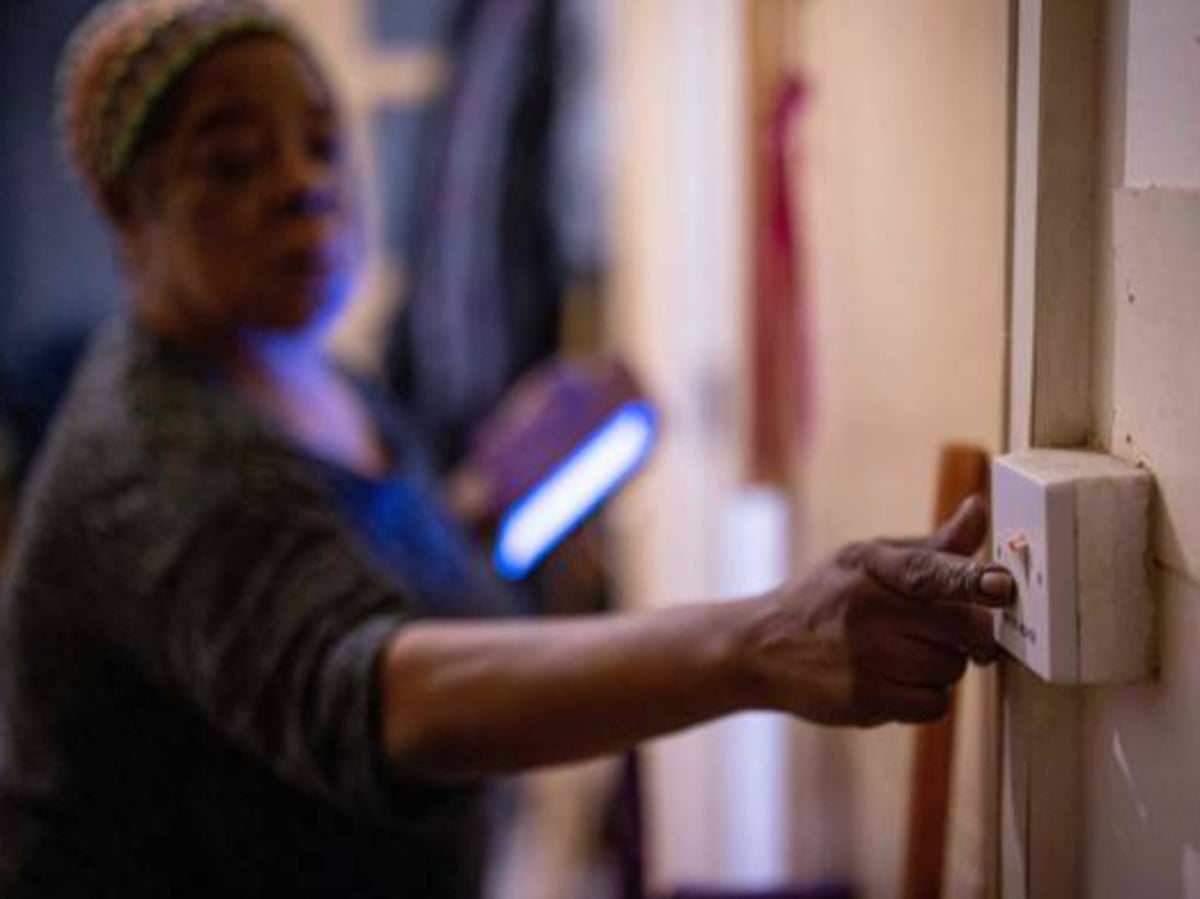
Household gas and electricity bills are due to start dropping from Saturday as the nationwide energy price cap falls by 37 per cent.
It means a typical user paying by direct debit will pay £2,074 a year for energy, rather than £3,280, as now – a reduction of £1,206.
Regulator Ofgem originally introduced the legally binding price cap in January 2019 to try to ease the burden for householders on variable tariffs, which are more expensive than fixed deals.
Prepayment tariff rates will fall by more than direct debit rates— (AFP via Getty Images)
The cap, which limits the price of each unit of gas and electricity used as well as daily standing charges, changes four times a year – in January, April, July and October.
But since October last year, the level of the energy price cap has been superseded by the energy price guarantee (EPG), which the government introduced to protect consumers over winter from bills that were soaring as the cap rose steeply, partly as a result of Russia’s war on Ukraine.
The EPG, a “cap on a cap”, also limits charges per kilowatt hour (kWh) of gas and electricity used, plus daily standing charges. It does not cap people’s overall bills.
However, when the energy price cap falls from 1 July by 37 per cent, it will be 17 per cent lower than the current EPG rate, which itself is due to increase.
So for anyone on direct debits, it will again control prices, effectively making the higher EPG irrelevant for at least the coming months.
The EPG will still take effect for prepayment tariffs, bringing average charges down to just below direct debit fees.
For customers paying by direct debit, average unit rates per kWh of gas will drop from Saturday from 10.31p to 7.51p, and rates per kWh of electricity will drop from 33.21p to 30.11p.
The £2,074-a-year calculation is not a maximum, but is based on an average household with typical use. Higher users will pay more.
For those on prepayment tariffs, rates fall from 10.55p per kWh of gas to 7.11p, and 32.05p per kWh of electricity to 29.06p.
Standing charges – the fee for being linked to the grid - will not change.
Government adverts about energy bills help were put on buses— (Getty Images)
Bill-payers do not have to do anything to claim the lower rates, as the cap will take effect automatically.
However, it’s been reported that the government is considering halting the suspension of green levies in the coming days, which would add another £170 a year to bills.
Consumer expert Martin Lewis has urged people who pay by direct debit to submit meter readings to avoid being charged at the higher rates after Saturday.
The new EPG of £3,000 a year will come into effect only if the price cap rises again above this level before the EPG ends in March next year.
Between October and the end of this year, the price cap is forecast by Cornwall Insight energy analysts to fall again, this time by 7 per cent, taking average bills down to £1,933.
Price cap changes are largely based on wholesale costs to suppliers, as well as factors such as the costs of maintaining pipes and wires.







